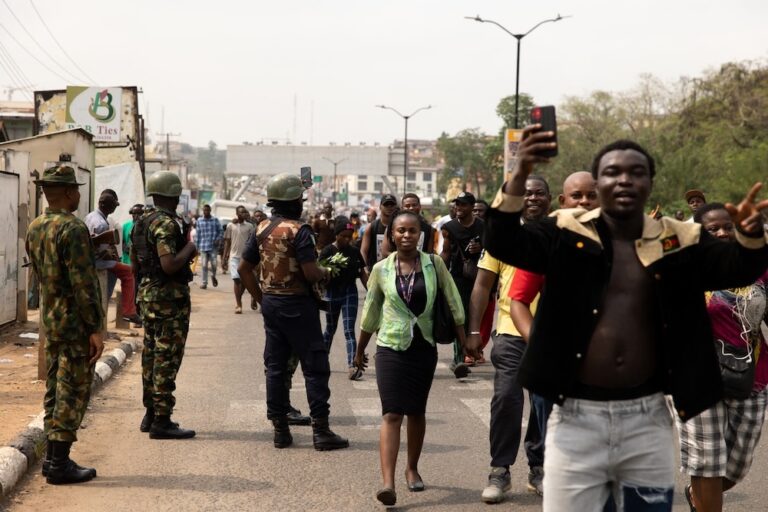The Kogi State House of Assembly has summoned a publisher and two human rights activists to appear before it on August 28, 2013 to answer questions over an article published in a magazine on allowances for constituency projects.
The Kogi State House of Assembly, the legislative arm of a state located at North-Central Nigeria, has summoned a publisher and two human rights activists to appear before it on August 28, 2013 to answer questions over an article published in a magazine on allowances for constituency projects.
Mr. Idris Miliki, the Executive Director for Centre for Human Rights and Conflict Resolution based in Lokoja, the State capital; Mr Ade Bada, the Publisher of The Public magazine, a local publication also based in Lokoja; and Comrade Iliasu Megida, a Kogi State-based human rights activist; were issued with summons on Friday over an article in The Public magazine titled “Kogi State House of Assembly: Lawmakers or Moneymakers”.
The article examined the practice by the legislators of collecting constituency allowances, concluding that lawmakers rather than their constituents have been the beneficiaries of such allowances.
The article stated that in the last two years, the legislators had collected over N10 million (approx $62,000) without any meaningful project to show for expended funds.
Miliki and Megida were interviewed by The Public magazine and quoted in the article.
In the interview, Miliki noted that citizens expect lawmakers to share information, build transparency, promote accountability and encourage participation in governance, adding that democracy is not a spectator game with citizens or the electorates merely applauding or singing praises from the sidelines.
He advised that citizens or the electorate should also not be forced into a role of only making adversarial complaints or criticisms, and warned the lawmakers to learn not to undermine their constituents.
Miliki also stressed that when acts of irresponsibility are displayed by an elected representative, they betray the essence of democracy.
For his part, Megida wondered why funds are released directly to the lawmakers for constituency projects, arguing that it is against the rules to give public funds to legislators for constituency projects.
Faulting the idea of giving cash to the legislators as constituency allowances, Megida explained that what they ought have done was to identify their projects while the executive awards the contracts for them.
Megida described the practice as an attempt to defraud the state.
Miliki said on August 22, he was summoned to the Office of the Speaker of House, Hon Jimoh Lawal and questioned before the Speaker, with about 12 other members of the House of Assembly as well as the Clerk of the House, Deacon Simon Momoh.
The House later deliberated on a motion by Mr. Akawu Salihu, the Chairman of the House Committee on Information, on the same day and in the ensuing debate, many members of the House described the article as malicious, saying it had put their reputations at stake.
The House unanimously resolved that Bada, Miliki and Megida be asked to appear on the floor of the House on August 28, 2013.
In a legal opinion on the matter, an Abuja-based lawyer and Director of the Centre for Social Justice, Mr. Eze Onyekpere, argued that the House had no power, under the Constitution, over the human rights activists. The interview does touch on any of the items mention in the Constitution over which the House has investigative or legislative powers and could summon persons to appear before it.


